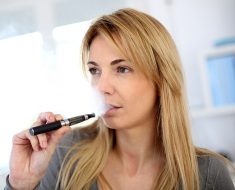Due to the Ebola outbreak in the Congo, the neighboring country of Burundi has launched a vaccination campaign against the dangerous disease. First of all, about 4000 people were vaccinated, said Susannah Savage, a spokeswoman for the world health organization (WHO). It is believed that people with a high risk of infection, such as health personnel working close to the border with the Congo.
Since August 2018, the Ebola vaccine rVSV-ZEBOV-GP is used in the so-called ring vaccination. In this respect, close contacts of Ebola-are Affected selectively immunized. The funding is not approved yet, but according to initial studies, the vaccine protects in 97.5 percent of the cases, from an infection, so highly effective. In addition, the vaccination increased the chances of Survival of already infected patients.
In the Congo were vaccinated according to the authorities, so far, nearly 200,000 people against Ebola. In addition, the bordering countries of Rwanda, South Sudan and Uganda have already started vaccination campaigns.
Scientists had announced at the beginning of the week that two experimental treatments against Ebola are so good that they are now all patients in the Congo offered. According to the National Institute of Allergy and Infectious Diseases, about 90 percent of the patients were cured by treatment with artificially produced antibodies. So far, there are still no drugs specifically approved for the treatment of Ebola patients.
Ebola is still not under control
The Ebola epidemic erupted a year ago in the area of Butembo in the North Kivu province in the Democratic Republic of the Congo. Since at least 1790, people in the Region, according to official Figures, to the Virus died. After the death of the first Ebola patient in Goma, the second largest city in the country, called for the WHO an international health emergency.
After the devastating epidemic in West Africa 2014/2015, with over 11,000 deaths, this is the worst outbreak. It is particularly difficult to control, since in the Region of several militias are active. Again and again Ebola will be attacked-helper. In addition, fear and distrust prevails in the population towards the disease and towards the helpers.
The Ebola Virus, the Affected suffer from fever, muscle pain, diarrhea, and in severe cases, internal bleeding and organ failure. The contact of an Infected is enough to infect. Helpers wear special protective clothing. The WHO is concerned because the outbreak is after a year still under control.





